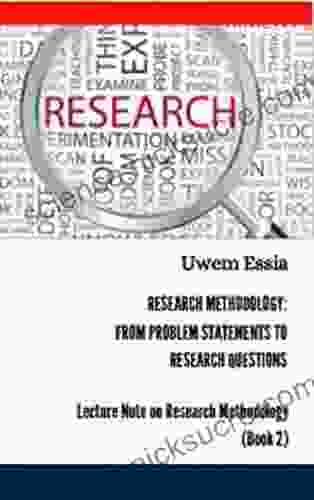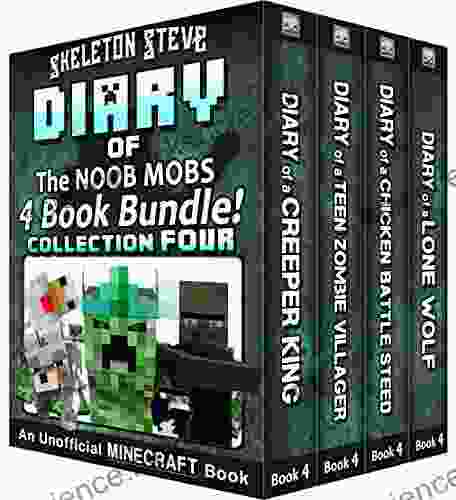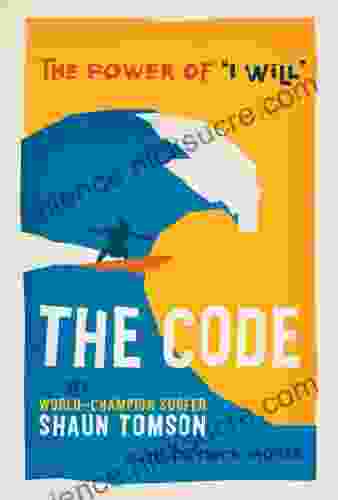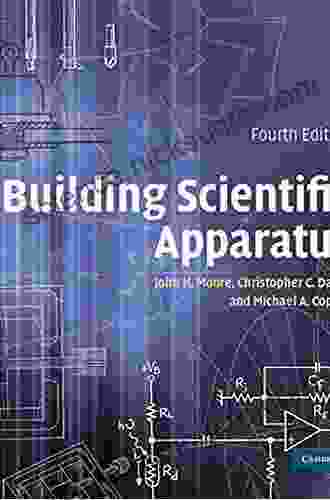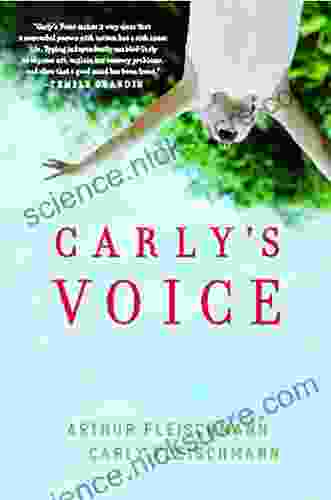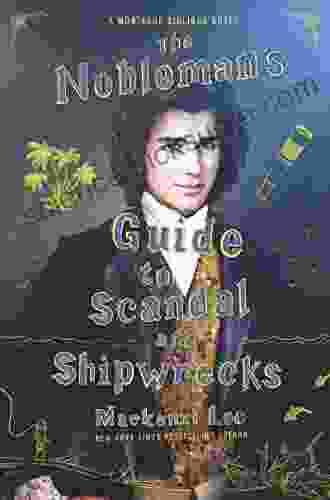From Problem Statements to Research Questions: A Comprehensive Lecture Note on Research

In the realm of scientific inquiry, crafting well-defined research questions is paramount to the success of any investigation. A clearly articulated research question serves as the cornerstone of a study, guiding researchers in their exploration and analysis of a particular problem. This lecture note aims to provide a comprehensive overview of the process of transforming problem statements into research questions, ensuring that researchers can embark on their research endeavors with a solid foundation.
The foundation of a research question lies in a problem statement, which encapsulates the issue or concern that researchers seek to address. Problem statements typically begin with a broad observation or description of a phenomenon, followed by a statement of the specific issue or challenge that requires further investigation. To effectively develop research questions, it is crucial to conduct thorough research, consult relevant literature, and consult with subject matter experts. This process ensures that the identified problem is significant, relevant, and within the scope of research feasibility.
- Clear and concise: The problem statement should succinctly and accurately describe the issue under investigation.
- Specific and Measurable: It should identify a specific aspect of the problem and provide metrics for evaluating its extent or impact.
- Feasible: The problem should be realistically addressable within the constraints of the research.
- Significant: The problem should have meaningful implications for the field or society at large.
Once a problem statement has been established, the next step is to formulate research questions that will guide the investigation. Research questions are precise inquiries that focus on specific aspects of the problem statement. They are typically phrased in a way that allows for empirical testing and analysis.
4.8 out of 5
| Language | : | English |
| File size | : | 278 KB |
| Text-to-Speech | : | Enabled |
| Screen Reader | : | Supported |
| Enhanced typesetting | : | Enabled |
| Word Wise | : | Enabled |
| Print length | : | 34 pages |
| Lending | : | Enabled |
- Descriptive questions: These questions seek to describe the characteristics or features of a phenomenon.
- Comparative questions: These questions compare two or more groups or conditions to identify similarities or differences.
- Causal questions: These questions investigate the relationship between variables, aiming to determine cause-and-effect relationships.
- Evaluative questions: These questions assess the effectiveness or impact of an intervention or program.
- Testable: The question should be phrased in a manner that allows for empirical investigation and data collection.
- Specific: It should focus on a particular aspect of the problem statement.
- Feasible: The question should be answerable within the scope of the research resources and timeframe.
- Relevant: The question should directly address the problem statement and contribute to its understanding.
Hypothesis testing is a fundamental aspect of research that involves formulating a hypothesis or prediction and then testing it against empirical evidence. By proposing a hypothesis, researchers can make specific predictions about the outcome of their investigation. This allows them to gather data, analyze it, and determine whether their hypothesis is supported or refuted.
- Formulate a hypothesis: This is a specific prediction about the expected outcome of the research.
- Collect data: Data is gathered through experimentation, surveys, observations, or other methods.
- Analyze data: The collected data is subjected to statistical analysis to determine if it supports the hypothesis.
- Draw s: Based on the analysis, researchers determine whether the hypothesis is accepted or rejected.
The ability to effectively transform problem statements into research questions is a pivotal skill for researchers. By following the principles outlined in this lecture note, researchers can ensure that their studies are focused, relevant, and empirically testable. This provides a solid foundation for conducting rigorous investigations that contribute to the advancement of knowledge and the resolution of pressing societal issues. Remember, well-defined research questions are the linchpin for successful research endeavors, guiding researchers toward meaningful discoveries and transformative outcomes.
4.8 out of 5
| Language | : | English |
| File size | : | 278 KB |
| Text-to-Speech | : | Enabled |
| Screen Reader | : | Supported |
| Enhanced typesetting | : | Enabled |
| Word Wise | : | Enabled |
| Print length | : | 34 pages |
| Lending | : | Enabled |
Do you want to contribute by writing guest posts on this blog?
Please contact us and send us a resume of previous articles that you have written.
 Fiction
Fiction Non Fiction
Non Fiction Romance
Romance Mystery
Mystery Thriller
Thriller SciFi
SciFi Fantasy
Fantasy Horror
Horror Biography
Biography Selfhelp
Selfhelp Business
Business History
History Classics
Classics Poetry
Poetry Childrens
Childrens Young Adult
Young Adult Educational
Educational Cooking
Cooking Travel
Travel Lifestyle
Lifestyle Spirituality
Spirituality Health
Health Fitness
Fitness Technology
Technology Science
Science Arts
Arts Crafts
Crafts DIY
DIY Gardening
Gardening Petcare
Petcare Michael W King
Michael W King Leigh Sales
Leigh Sales Dmitry Zinoviev
Dmitry Zinoviev Elizabeth Thompson
Elizabeth Thompson Barbara Oehlberg
Barbara Oehlberg Clint Emerson
Clint Emerson Kevin Williams
Kevin Williams Rene D Zweig
Rene D Zweig Paramahansa Yogananda
Paramahansa Yogananda Jerry Robertson
Jerry Robertson Alan E Kazdin
Alan E Kazdin Noha Mellor
Noha Mellor George Knudson
George Knudson Jessica Cornwell
Jessica Cornwell George Plimpton
George Plimpton Snap Summaries
Snap Summaries Lisa Kenney
Lisa Kenney Amelia Simmons
Amelia Simmons Leif K Karlsen
Leif K Karlsen Jeanne Faulkner
Jeanne Faulkner Jay H Lefkowitch
Jay H Lefkowitch Stephanie Izard
Stephanie Izard Ged Jenkins Omar
Ged Jenkins Omar Gina Guddat
Gina Guddat Catherine Belknap
Catherine Belknap Dylan Alcott
Dylan Alcott Gayle Peterson
Gayle Peterson Tom Shachtman
Tom Shachtman Al Owens
Al Owens George Monbiot
George Monbiot M K Hume
M K Hume Aileen Nielsen
Aileen Nielsen Judy Jewell
Judy Jewell Al Sweigart
Al Sweigart Gary B Ferngren
Gary B Ferngren Benjamin Johnston
Benjamin Johnston Collins Easy Learning
Collins Easy Learning Dawn Sakamoto Paiva
Dawn Sakamoto Paiva Al Barkow
Al Barkow Deborah Harkness
Deborah Harkness Michael Gray
Michael Gray Lecile Harris
Lecile Harris Dr David Geier
Dr David Geier Douglas Noll
Douglas Noll Rosemarie Anderson
Rosemarie Anderson Carla Schroder
Carla Schroder Jane Bottomley
Jane Bottomley Sandy Lindsey
Sandy Lindsey Brenda Nathan
Brenda Nathan Gary R Varner
Gary R Varner Shing Tung Yau
Shing Tung Yau Ahmed Osman
Ahmed Osman Craig Childs
Craig Childs Martin Luther King Jr
Martin Luther King Jr Aiva Books
Aiva Books Tenth Edition Revised Kindle Edition
Tenth Edition Revised Kindle Edition Jan Smith
Jan Smith Morgan Lyle
Morgan Lyle Dorothy H Crawford
Dorothy H Crawford Alan E Sparks
Alan E Sparks Stephen Wolfram
Stephen Wolfram Noel St Clair
Noel St Clair Kate Brian
Kate Brian Shaun Tomson
Shaun Tomson Natazha Raine O Connor
Natazha Raine O Connor Andy Zipser
Andy Zipser Helen Hollick
Helen Hollick Kiku Hughes
Kiku Hughes Kiersten White
Kiersten White Damon Lee
Damon Lee Beata Bliss Lewis Md
Beata Bliss Lewis Md Kardas Publishing
Kardas Publishing Vishwesh Bhatt
Vishwesh Bhatt Mark Occhilupo
Mark Occhilupo Andrew Blum
Andrew Blum Skeleton Steve
Skeleton Steve Bruce Lee
Bruce Lee Martin Rooney
Martin Rooney Julie Bradley
Julie Bradley Karen Levin Coburn
Karen Levin Coburn Louis Schubert
Louis Schubert Hannah Ewens
Hannah Ewens Peter Hathaway Capstick
Peter Hathaway Capstick David F Kelly
David F Kelly Erin Lovelace
Erin Lovelace Jill Stamm
Jill Stamm Spencer Wells
Spencer Wells Robert E Stake
Robert E Stake Constance Classen
Constance Classen Alan Margot
Alan Margot Bruce J Macfadden
Bruce J Macfadden Carl Gustav Jung
Carl Gustav Jung Kelly Jensen
Kelly Jensen John J Miller
John J Miller Antipodean Writer
Antipodean Writer Jerry Robeson
Jerry Robeson Bill Parisi
Bill Parisi Erin Ekins
Erin Ekins Dave Heller
Dave Heller Jill Homer
Jill Homer Mike Warren
Mike Warren John Bird
John Bird Steven Trimble
Steven Trimble Esther Parry
Esther Parry Tim Gallagher
Tim Gallagher Bradley Efron
Bradley Efron Jackson Katz
Jackson Katz James F Boswell
James F Boswell Akwaeke Emezi
Akwaeke Emezi Jay Speight
Jay Speight Christopher Gavigan
Christopher Gavigan Sara Hanover
Sara Hanover Charles J Thayer
Charles J Thayer Juliet Marillier
Juliet Marillier Alice Scordato
Alice Scordato Alfred S Posamentier
Alfred S Posamentier David King
David King Takuan Soho
Takuan Soho Sophia Joy
Sophia Joy Jim Steenburgh
Jim Steenburgh Harriet Brown
Harriet Brown Lisa Newton
Lisa Newton Dave Whitson
Dave Whitson Gary Player
Gary Player Jamie Baulch
Jamie Baulch Alan Burdick
Alan Burdick Alan Murchison
Alan Murchison Steven H Strogatz
Steven H Strogatz Vera Nazarian
Vera Nazarian George M Fredrickson
George M Fredrickson Aphra Behn
Aphra Behn Alice Oseman
Alice Oseman Chris Klug
Chris Klug Robin Mckinley
Robin Mckinley Mike Rothschild
Mike Rothschild Rick Bass
Rick Bass Markus Rex
Markus Rex Doug Gelbert
Doug Gelbert Angelina Wilson
Angelina Wilson Joe Berardi
Joe Berardi Alan S Kaufman
Alan S Kaufman Matthew Mcbee
Matthew Mcbee John H Moore
John H Moore Jay Annelli
Jay Annelli Mike Martin
Mike Martin Molly Absolon
Molly Absolon Mariam N Ottimofiore
Mariam N Ottimofiore Douglas T Hall
Douglas T Hall Anahad O Connor
Anahad O Connor Nick Hughes
Nick Hughes Ilan Dvir
Ilan Dvir Publishdrive Edition Kindle Edition
Publishdrive Edition Kindle Edition Cynthia Clumeck Muchnick
Cynthia Clumeck Muchnick Joanne Webb
Joanne Webb Len Sperry
Len Sperry Albert Einstein
Albert Einstein Sir Edmund Hillary
Sir Edmund Hillary G E R Lloyd
G E R Lloyd Michal Stawicki
Michal Stawicki Erica Westly
Erica Westly Denise Alvarado
Denise Alvarado Bobby Flay
Bobby Flay Thomas Kurz
Thomas Kurz Hiro Ainana
Hiro Ainana Steve Michalik
Steve Michalik Mel Thompson
Mel Thompson Teresa Mccallum
Teresa Mccallum Christopher Scordo
Christopher Scordo William Foote Whyte
William Foote Whyte Zita West
Zita West Anna Hickey Moody
Anna Hickey Moody Suze Guillaume
Suze Guillaume Christopher Willard
Christopher Willard Bianca Smith
Bianca Smith Jessica Battilana
Jessica Battilana Frank E Harrell Jr
Frank E Harrell Jr Nilakantasrinivasan J Neil
Nilakantasrinivasan J Neil Celeste Headlee
Celeste Headlee Alan Lightman
Alan Lightman Bob Plott
Bob Plott Kevin Hunter
Kevin Hunter Robert M Emerson
Robert M Emerson Marsha Wenig
Marsha Wenig Alan S Gurman
Alan S Gurman David A Sousa
David A Sousa Shoshana Levin Fox
Shoshana Levin Fox Roxy And Ben Dawson
Roxy And Ben Dawson Richard Pears
Richard Pears Dean Burnett
Dean Burnett Kate Bettison
Kate Bettison Robert Heidler
Robert Heidler Hammad Fozi
Hammad Fozi Daphne Rose Kingma
Daphne Rose Kingma John Riley
John Riley E A Koetting
E A Koetting Pavel Tsatsouline
Pavel Tsatsouline Anne Dachel
Anne Dachel Eddy Starr Ancinas
Eddy Starr Ancinas Original Edition Kindle Edition
Original Edition Kindle Edition Gillian Gill
Gillian Gill Orson Scott Card
Orson Scott Card Sheila Barton
Sheila Barton Dr Joseph Parent
Dr Joseph Parent James Gleick
James Gleick Trevor Lund
Trevor Lund Bryan Mann
Bryan Mann Pallas Snider
Pallas Snider Kerry Diamond
Kerry Diamond Toby Wilkinson
Toby Wilkinson Samuel Carbaugh
Samuel Carbaugh Peg Tyre
Peg Tyre Jonathan Gottschall
Jonathan Gottschall Andrea Travillian
Andrea Travillian Yang Jwing Ming
Yang Jwing Ming Cat Warren
Cat Warren Hope Smith
Hope Smith Robert Macfarlane
Robert Macfarlane Mary Basick
Mary Basick Alan Garner
Alan Garner Alan Hearnshaw
Alan Hearnshaw Lj Andrews
Lj Andrews Thubten Chodron
Thubten Chodron Edward A Tiryakian
Edward A Tiryakian Kidada Jones
Kidada Jones The Rogue Hypnotist
The Rogue Hypnotist Hervey Garrett Smith
Hervey Garrett Smith Alex Light
Alex Light Matthew Sturm
Matthew Sturm Joyce Burkhalter Flueckiger
Joyce Burkhalter Flueckiger Letisha Galloway
Letisha Galloway Alan Booth
Alan Booth Kareem Abdul Jabbar
Kareem Abdul Jabbar Dennis Jarecke
Dennis Jarecke Anders Halverson
Anders Halverson Cindy Hudson
Cindy Hudson Michael Casey
Michael Casey Gavin Francis
Gavin Francis Tod E Bolsinger
Tod E Bolsinger Francesca Lia Block
Francesca Lia Block Wayne Stewart
Wayne Stewart Arthur Fleischmann
Arthur Fleischmann Christopher Hellman
Christopher Hellman Alan Shipnuck
Alan Shipnuck Alana Mclaren
Alana Mclaren Edupan7 Publishing
Edupan7 Publishing Patrick O Sullivan
Patrick O Sullivan Roy Dittmann
Roy Dittmann Michael Miller
Michael Miller Dr Guy Leschziner
Dr Guy Leschziner Jack Nicklaus
Jack Nicklaus Kim Stanley Robinson
Kim Stanley Robinson Nina Lacour
Nina Lacour Dan Dipiro
Dan Dipiro Elaine Howard Ecklund
Elaine Howard Ecklund Farlex International
Farlex International Lee Carroll
Lee Carroll Habeeb Quadri
Habeeb Quadri Paul G Schempp
Paul G Schempp Micky Ward
Micky Ward Linda Welters
Linda Welters Contractor Education Inc
Contractor Education Inc David Roberts
David Roberts We Fairbairn
We Fairbairn Ken Denmead
Ken Denmead Jacqueline Fitzpatrick
Jacqueline Fitzpatrick Ainsley Arment
Ainsley Arment Rand Cardwell
Rand Cardwell Alaina Talboy
Alaina Talboy John Muir
John Muir Caitlin Zaloom
Caitlin Zaloom Arnold Yates
Arnold Yates James A Michener
James A Michener Aja Raden
Aja Raden Joe Clement
Joe Clement Alan Porter
Alan Porter Deitra Leonard Lowdermilk
Deitra Leonard Lowdermilk S A Klopfenstein
S A Klopfenstein Steve Moore
Steve Moore Brian Mills
Brian Mills Ann Hagedorn
Ann Hagedorn Alan Watts
Alan Watts Christos A Djonis
Christos A Djonis Martin J Pring
Martin J Pring Charles B White
Charles B White Rebecca Jones
Rebecca Jones Carol Tuttle
Carol Tuttle Nick Lyons
Nick Lyons William A Kaplin
William A Kaplin Penney Peirce
Penney Peirce Rehana Jawadwala
Rehana Jawadwala Clyde Fitch
Clyde Fitch Jenni Hicks
Jenni Hicks Larry Wasserman
Larry Wasserman Percy Boomer
Percy Boomer Alastair Humphreys
Alastair Humphreys Zondervan
Zondervan Mista Nove
Mista Nove Meredith Marsh
Meredith Marsh George E Andrews
George E Andrews United States Government Us Marine Corps
United States Government Us Marine Corps Alan R Hall
Alan R Hall Kristine Barnett
Kristine Barnett Al Roker
Al Roker Ndeye Labadens
Ndeye Labadens Al Marlowe
Al Marlowe Melinda Rushe
Melinda Rushe Emeran Mayer
Emeran Mayer Ken Schultz
Ken Schultz Magnus Thollander
Magnus Thollander Josh Kilmer Purcell
Josh Kilmer Purcell Madeline Milne
Madeline Milne Lingo Mastery
Lingo Mastery 12th Edition Kindle Edition
12th Edition Kindle Edition Timothy C Smith
Timothy C Smith Amye Archer
Amye Archer Judith Garrard
Judith Garrard Bettina Gordon Wayne
Bettina Gordon Wayne Lo Bosworth
Lo Bosworth Andrew Jamieson
Andrew Jamieson Amelia Mayer
Amelia Mayer Don Casey
Don Casey Samuel N Rosenberg
Samuel N Rosenberg Eden O Neill
Eden O Neill David D Burns
David D Burns Theodore P Jorgensen
Theodore P Jorgensen Rose Lynn Fisher
Rose Lynn Fisher Dusty Rhodes
Dusty Rhodes Conor Daly
Conor Daly James Witts
James Witts Sonia Nazario
Sonia Nazario Al Pasha
Al Pasha Amanda Ford
Amanda Ford Terry L Duran
Terry L Duran R A Salvatore
R A Salvatore Graham Bower
Graham Bower Aileen Evans
Aileen Evans Billy Walsh
Billy Walsh J R Haseloff
J R Haseloff Juno Roche
Juno Roche Kerstin Gier
Kerstin Gier Alan Rouse
Alan Rouse Kai Nacke
Kai Nacke Joe Bertagna
Joe Bertagna James Willard Schultz
James Willard Schultz Aidan Chambers
Aidan Chambers Franz Metcalf
Franz Metcalf Marc M Triola
Marc M Triola Olivia Gentile
Olivia Gentile Gordon R Dickson
Gordon R Dickson Jane P Gardner
Jane P Gardner Bryon Powell
Bryon Powell Andrew Rowe
Andrew Rowe Michael Sidgwick
Michael Sidgwick Tina Dreffin
Tina Dreffin David Crabtree
David Crabtree Robert L Kelly
Robert L Kelly Janice Selekman
Janice Selekman Sarah Hendrickx
Sarah Hendrickx Al Strachan
Al Strachan Kevin B Shearer
Kevin B Shearer Margaret J Wheatley
Margaret J Wheatley Sara Wickham
Sara Wickham G H Hardy
G H Hardy Celeste Jones
Celeste Jones Massad Ayoob
Massad Ayoob Alan Graham
Alan Graham Chris Bowers
Chris Bowers Mark Goulston
Mark Goulston Gill Rapley
Gill Rapley Miles Mckenna
Miles Mckenna Jay Revell
Jay Revell Gary Smith
Gary Smith Michael Morpurgo
Michael Morpurgo Alana Chernila
Alana Chernila Emily Harris Adams
Emily Harris Adams Aileen Erin
Aileen Erin Amy Edelstein
Amy Edelstein Donna Morang
Donna Morang Susan B Lovejoy
Susan B Lovejoy Rob Casey
Rob Casey Barbara Scott
Barbara Scott Alan Vermilye
Alan Vermilye John Feinstein
John Feinstein Howard Hill
Howard Hill Mackenzi Lee
Mackenzi Lee Linda G Morris
Linda G Morris Michael Shermer
Michael Shermer Anne Enright
Anne Enright Lauren Blackwood
Lauren Blackwood Pantea Kalhor
Pantea Kalhor Lisa Marasco
Lisa Marasco Daniel C Okpara
Daniel C Okpara Peter Irvine
Peter Irvine Michael Domican
Michael Domican Satya Sundar Sethy
Satya Sundar Sethy Brandy Roon
Brandy Roon Howard Maxwell
Howard Maxwell Gail Tully
Gail Tully Bob Mayer
Bob Mayer Al Yellon
Al Yellon Terry Funk
Terry Funk Helen Palmer
Helen Palmer Helena Clare
Helena Clare Tonya Johnston
Tonya Johnston Michael Freedland
Michael Freedland David Jason
David Jason George Buehler
George Buehler Martin Erwig
Martin Erwig Dimitri Loose
Dimitri Loose Robert A Sadowski
Robert A Sadowski Jon Tyson
Jon Tyson Michael D Rich
Michael D Rich Jordon Greene
Jordon Greene Thomas Metzinger
Thomas Metzinger Taquetta Baker
Taquetta Baker Harold Klemp
Harold Klemp Courtney Macavinta
Courtney Macavinta Isabella Morris
Isabella Morris Stephen M Camarata
Stephen M Camarata John T Hansen
John T Hansen Arnold Haultain
Arnold Haultain Po Bronson
Po Bronson Aitzaz Imtiaz
Aitzaz Imtiaz Al Ristori
Al Ristori Bill Walker
Bill Walker Aidan Comerford
Aidan Comerford Mark Booth
Mark Booth Al Desetta M A
Al Desetta M A Jakob Tanner
Jakob Tanner Truman Everts
Truman Everts Rebekah Sack
Rebekah Sack Grace Lebow
Grace Lebow Janet Houser
Janet Houser Scott Surovich
Scott Surovich Gregory J Davenport
Gregory J Davenport Aimee Aristotelous
Aimee Aristotelous Andre Agassi
Andre Agassi Terry Breverton
Terry Breverton Sam J Fires
Sam J Fires Ron L Deal
Ron L Deal Anthonissa Moger
Anthonissa Moger Nancy Hughes
Nancy Hughes Mykel Hawke
Mykel Hawke Vanessa Ogle
Vanessa Ogle Jeremy Miles
Jeremy Miles Jon Emmett
Jon Emmett Alan Lawrence Sitomer
Alan Lawrence Sitomer I Johnson
I Johnson Margit Ystanes
Margit Ystanes Charlotte Markey
Charlotte Markey Melissa Bashardoust
Melissa Bashardoust Nassim Nicholas Taleb
Nassim Nicholas Taleb Ai Publishing
Ai Publishing Katharine Graves
Katharine Graves Akil Palanisamy
Akil Palanisamy Jacob K Olupona
Jacob K Olupona Florence Williams
Florence Williams Peter Ballingall
Peter Ballingall Mendocino Press
Mendocino Press J Zoltan
J Zoltan Andy Adams
Andy Adams Al Macy
Al Macy Jacqueline Church Simonds
Jacqueline Church Simonds Jacqueline Tourville
Jacqueline Tourville Mark Harris
Mark Harris Marcus Chown
Marcus Chown Timm Woods
Timm Woods Bill Friedrich
Bill Friedrich Douglas G Altman
Douglas G Altman Princess Her
Princess Her Vernon Coleman
Vernon Coleman David Vine
David Vine Megan Gray Md
Megan Gray Md Lexie Scott
Lexie Scott Matt Mosher
Matt Mosher Frances E Jensen
Frances E Jensen Will Storr
Will Storr Gordon H Orians
Gordon H Orians John Irving
John Irving Layla Moon
Layla Moon William Harding
William Harding Alan C Acock
Alan C Acock Steven Horak
Steven Horak Belinda Luscombe
Belinda Luscombe Howard Greene
Howard Greene Vasilis Konstantinos Giontzis
Vasilis Konstantinos Giontzis Donald Woods Winnicott
Donald Woods Winnicott Laurie Pickard
Laurie Pickard Jeff Maynard
Jeff Maynard Lex Croucher
Lex Croucher W E Fairbairn
W E Fairbairn Mark Drolsbaugh
Mark Drolsbaugh Jessica Cunsolo
Jessica Cunsolo Jane Poynter
Jane Poynter Alan Gelb
Alan Gelb S Connolly
S Connolly Betsy Tobin
Betsy Tobin Jonathan White
Jonathan White John Leo
John Leo Chris Vines
Chris Vines Nicholas Romanov
Nicholas Romanov Aidan Dodson
Aidan Dodson E Cheng
E Cheng Saul Rip
Saul Rip
Light bulbAdvertise smarter! Our strategic ad space ensures maximum exposure. Reserve your spot today!
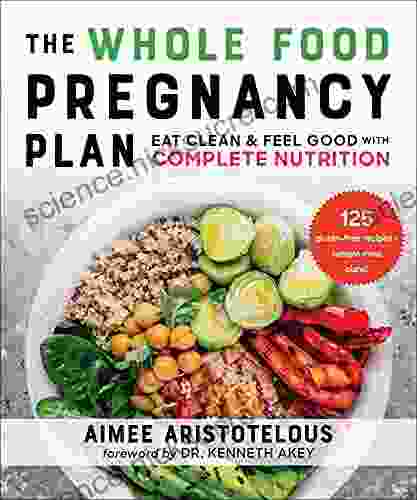
 Edmund HayesThe Whole Food Pregnancy Plan: A Comprehensive Guide to Nourishing Your Body...
Edmund HayesThe Whole Food Pregnancy Plan: A Comprehensive Guide to Nourishing Your Body... Dustin RichardsonFollow ·17.1k
Dustin RichardsonFollow ·17.1k Clarence BrooksFollow ·4.4k
Clarence BrooksFollow ·4.4k Geoffrey BlairFollow ·14.6k
Geoffrey BlairFollow ·14.6k Levi PowellFollow ·5.7k
Levi PowellFollow ·5.7k Charles ReedFollow ·9.4k
Charles ReedFollow ·9.4k David MitchellFollow ·11.5k
David MitchellFollow ·11.5k Ismael HayesFollow ·15.8k
Ismael HayesFollow ·15.8k Jacob HayesFollow ·4.9k
Jacob HayesFollow ·4.9k
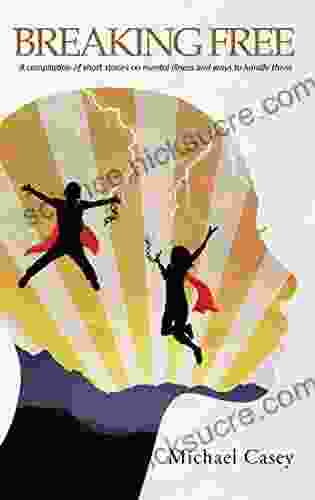
 Deacon Bell
Deacon BellCompilation of Short Stories on Mental Illness and Ways...
Mental illness is a serious issue that affects...
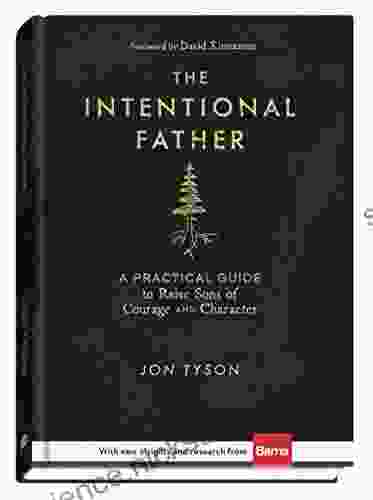
 Jonathan Hayes
Jonathan HayesThe Practical Guide to Raising Courageous and...
As parents, we all want...
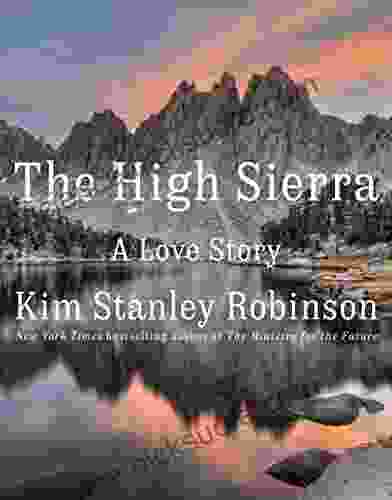
 Carlos Fuentes
Carlos FuentesA Journey to Remember: The High Sierra Love Story of...
Prologue: A Wilderness Encounter Beneath...
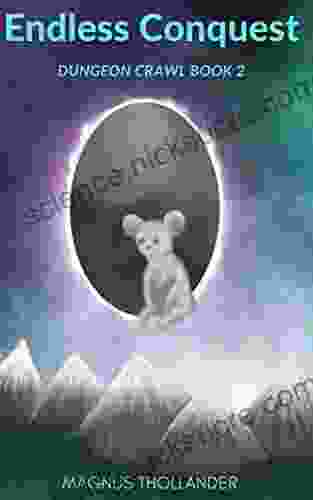
 Douglas Foster
Douglas FosterEndless Conquest: Embark on an Immersive Dungeon Crawl in...
Endless Conquest is a captivating LitRPG...
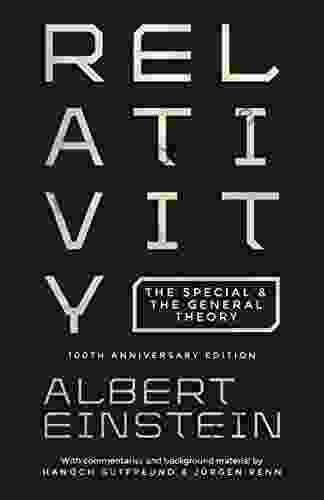
 Caleb Long
Caleb LongThe Special and the General Theory 100th Anniversary...
The year 2015 marks a...
4.8 out of 5
| Language | : | English |
| File size | : | 278 KB |
| Text-to-Speech | : | Enabled |
| Screen Reader | : | Supported |
| Enhanced typesetting | : | Enabled |
| Word Wise | : | Enabled |
| Print length | : | 34 pages |
| Lending | : | Enabled |


